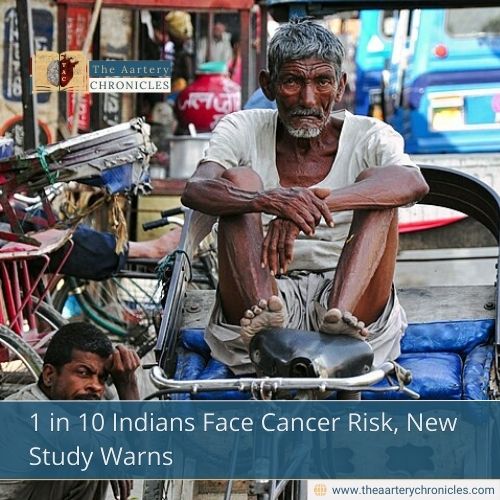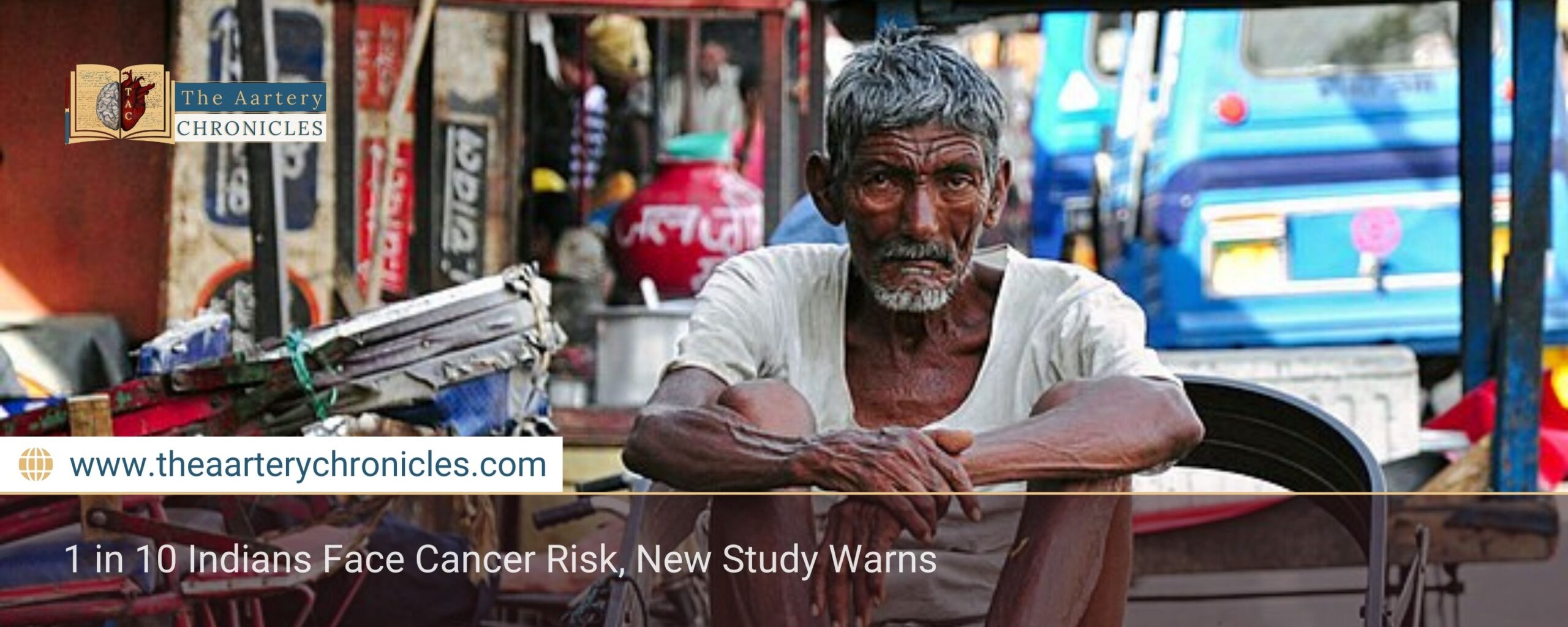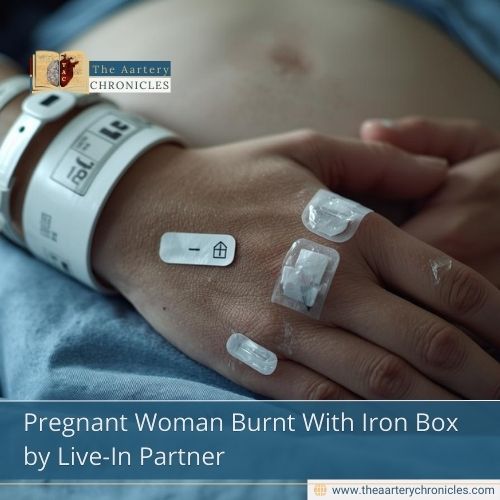

1 in 10 Indians Face Cancer Risk, New Study Warns
A new study has revealed that cancer risk in India is steadily rising, with nearly one in every 10 people between the ages of 0 and 74 likely to develop the disease during their lifetime. The research, published in JAMA Network Open by the National Cancer Registry Programme Investigator Group (NCRP-IG), highlights growing concerns about regional disparities, late diagnosis, and the urgent need for stronger cancer control measures.
Higher Cancer Risk in Certain Regions
The study analysed data from 43 population-based cancer registries collected between 2015 and 2019. According to the findings, the lifetime cancer risk is highest in several northeastern states, including Mizoram, Meghalaya, Arunachal Pradesh, and Assam.
In metro cities, the risk is also significant:
- Delhi: 16% among men and 14% among women
- Gautam Budh Nagar: 15% in men and 14% in women
- Mumbai: 14% in both men and women
Most Common Types of Cancer
The research also mapped the most frequent types of cancer affecting men and women in India.
- Men: Oral, lung, and prostate cancers are the most common.
- Women: Breast, cervical, and ovarian cancers top the list.
These patterns underline lifestyle factors, delayed screenings, and lack of awareness as key contributors to the growing burden.
Why Timely Detection Matters
Doctors warn that although early detection is crucial for effective treatment, most cancer cases in India are still diagnosed at late stages. This often reduces survival rates and complicates treatment. The study’s authors emphasise that the findings should guide policymakers in better resource allocation and public health planning.
Steps Towards Early Detection and Advanced Treatments
To address the challenge, the Indian Council for Medical Research (ICMR) has recently invited proposals for new technologies in early cancer detection and management. Among the promising solutions, the government is exploring the use of artificial intelligence (AI) to analyse medical images and patient records for faster and more accurate diagnosis.
On the treatment front, cutting-edge therapies are gaining attention:
- Targeted therapy: Drugs designed to attack only cancer cells while sparing healthy tissues.
- Immunotherapy: Innovative methods such as checkpoint inhibitors and CAR-T cell therapy that empower the body’s own immune system to fight cancer.
Conclusion
The rising cancer risk in India underscores the urgent need for widespread awareness campaigns, routine screenings, and investments in advanced medical technologies. With timely intervention, improved diagnostic tools, and access to modern treatments, India can better manage its growing cancer burden and improve survival outcomes.
Source: Inputs from various media Sources
I’m a pharmacist with a strong background in health sciences. I hold a BSc from Delhi University and a pharmacy degree from PDM University. I write articles and daily health news while interviewing doctors to bring you the latest insights. In my free time, you’ll find me at the gym or lost in a sci-fi novel.
- Priya Bairagi
- Health News and Updates,People Forum
- 30 August 2025
- 09:00








